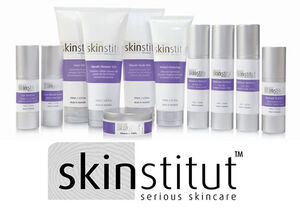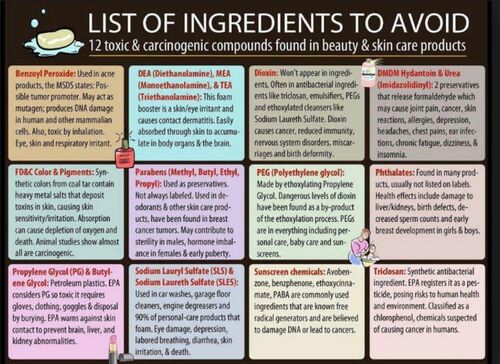
All About You
Monday October 21 2013

What is Cosmedical Skincare?
Cosmedicals are the newest and arguably the most effective category of skin care products that can be purchased without a prescription.
Often described as an advanced cosmeceutical, Cosmedicals have the ability to assist with dramatically improving the appearance of the skin. Based on a clinically proven blends of AHA’s, Retinoids, Vitamin C, Peptides, Antioxidants and SPF technology, Cosmedicals are not only reliant on potent active ingredients but utilise penetration enhancing formulations and encapsulation technology to deliver benefits as deep as possible into the skin.
Cosmedicals are often described as the last step before a doctor’s prescription and should always be prescribed by a skin professional in a medispa, skin clinic or medical practice environment.
Skinstitut Cosmedicals contain proven technology that is clinically tested, with active ingredients to ensure the best possible skin care results.
Many skincare companies claim to contain active ingredients in their products such as antioxidants and retinol, however, on closer investigation these ingredients are either in a percentage so small that they do not have any therapeutic benefit or formulated in such a way that the ingredients are unstable and lack efficacy.
Skinstitut believes good skincare should be simple, affordable and effective. The basis of great skin is simple, good nutrition, regular gentle exfoliation, correction with actives such as retinol and UV protection with a minimum SPF 15.
- Exfoliate
- Correct
- Protect
Skinstitut Cosmedicals contain proven technology that is clinically tested, with active ingredients to ensure the best possible skin care results.
The Skinstitut range is all the talk currently at local cafes with local women reporting the products are producing good results in a climate that is affected by humidity.
Skin Scene, at the corner of Warner and Owen streets Port Douglas, offers the Skinstitut range for sale and in use during their facial treatments and peels.
Current offer: buy three Skinstitut products for just $99 (normally $45 each).
Skinstitut products are available from Skin Scene in Port Douglas on 4099 4632 (see the Skin Scene ad for their full range of treatments).
Hypnosis
Hypnosis is perhaps one of the least understood therapeutic tools in use.
While most people think of hypnosis as a way to get somebody to bark like a dog at the snap of your fingers or take off their clothes when you say the work ‘stupendous’, hypnosis can be a valuable tool in helping people overcome fears, withstand pain, or, yes, even reduce stress in their lives.
Contrary to popular belief, you cannot be hypnotized without your consent or awareness. You can, however, be hypnotized by a trained professional whom you trust, to more easily achieve goals you set for yourself. Even better, you can save time and money and learn to hypnotize yourself using your own voice or even just your thoughts, a practice known as ‘self-hypnosis’.
How does hypnosis work?
Hypnosis can be used for stress management in two ways:
First, you can use hypnosis to get into a deeply relaxed state, fighting tension and triggering your relaxation response. This will help to prevent health problems due to chronic stress.
Second, hypnosis can also help you achieve various healthy lifestyle changes that can reduce the amount of stress you encounter in your life. For example, you can hypnotize yourself to stick to an exercise program, keep your home less cluttered, feel more confident setting boundaries with others, etc.
In this same vein, you can also effectively use hypnosis to help overcome any negative habits you’ve been using to cope with stress, like smoking or compulsive eating.
What's involved?
The process of hypnosis involves entering a trance, or a deeply relaxed, but focused state (like that of daydreaming or meditation), and making suggestions for your subconscious mind to accept. You can go to a trained professional for hypnotherapy, and they will talk you through it. Or, you can employ the use of books, videos, or even short articles to learn what’s involved, and achieve effective results at home.
What are the benefits?
Hypnosis is an extremely versatile tool that can be used for everything from simple relaxation to pain management in childbirth. (I can personally attest to this!) It’s easy to do, can be quite inexpensive, and the results are lasting. There are no potential negative side effects, and it can give multiple benefits at the same time.
What are the drawbacks?
Hypnosis isn’t for everyone. Some people have trouble getting past their initial prejudices about the practice in general, and some have a more difficult time getting into the trancelike state required for hypnotic suggestions to become deeply embedded. Others find that they simply can’t find the time or the focus, and have an easier time with other stress-management techniques.
How do hypnosis and self-hypnosis compare to other stress-reduction methods?
Like meditation, hypnosis does require more focus and practice than techniques like simple exercise or the use of medications and herbal treatments, and hypnosis also requires some training, or the help of a trained professional. However, hypnosis may be a preferable option for those with physical limitations that make exercise like yoga more difficult. There are no potential negative side effects, like with some medications or herbal remedies. Also, few other techniques can offer such a wide variety of benefits.
With training and practice, virtually anyone can use hypnosis to some degree of success, and experience the many benefits this technique has to offer.
For further information on how hypnosis can work for you, contact Maggie Wilde on 0405 138 567.
Maggie Wilde - Master Clinical Hypnotherapist
23-25 Warner Street, Port Douglas (at the Port Douglas Acupuncture Centre)
Info: About.com - Stress Management


Untreated asthma puts Mums-to-be at risk
Mums-to-be who have asthma and who don't continue preventer medication during pregnancy are more likely to have pregnancy complications or give birth prematurely, a new report warns.
Asthma is one of the most common chronic conditions affecting pregnant women in Australia, yet little is known about how many continue to use their preventer medication while pregnant, according to a paper by the Australian Centre for Asthma Monitoring (ACAM), published today.
The report that compiled research evidence from around the world, found that women who don't take prescribed preventer medicines are at increased risk of developing hypertension and pre-eclampsia, giving birth early or having an underweight newborn.
The good news, says Professor Guy Marks, one of the report authors and Head, Respiratory and Environmental Epidemiology at the Woolcock Institute of Medical Research, is that women with asthma can effectively control their symptoms and prevent any exacerbations with good care during pregnancy.
"In fact, if asthma is well controlled during pregnancy, as is recommended, the outcomes for the woman and her baby are no different than for women who do not have asthma," Prof Marks said. "And it's certainly safer than risking going without preventer medication at all."
The problem, says Prof Marks, is that there is currently no nationally-consistent collection of asthma-management information in pregnant women.
"We've got these clinical guidelines which outline best practice but we really don't know how many women are sticking to them, or how well, in order to best protect them and their babies," Prof Marks said.
Studies of pregnant women in Western Australia, Newcastle and Melbourne suggest about 12 per cent have asthma. Many will continue to take their medication but some women, and some health professionals, have concerns about potential adverse effects, and are not necessarily aware of the dangers that non-treatment can pose.
The report, published by the Australian Institute of Health and Welfare (AIHW), makes a case for population-level monitoring of pregnant women with the inflammatory lung condition. It recommends affected women have their condition reviewed in the first trimester of pregnancy, with checks every four to six weeks thereafter.
Better data collection would also help paint a clearer picture of who is getting care and who is missing out, Prof Marks said.
"The problems and solutions that we identify along the way could also be used to help with the management of other common chronic diseases, like diabetes and epilepsy, that can be troublesome in pregnancy," Prof Marks said.
The web-based report, entitled “Monitoring Asthma in Pregnancy: A Discussion Paper”, is available via AIHW: www.aihw.gov.au and ACAM: www.asthmamonitoring.org.
Asthma in pregnancy quick facts:
- Asthma is one of the most common chronic disorders affecting pregnant women. About 12 per cent of pregnant women have the condition.
- Current clinical guidelines recommend women continue to take their medication throughout pregnancy.
- If untreated, asthma can be unpredictable in pregnancy. It has been linked to complications like preeclampsia and premature birth.
- Little is known about how well Australian women are adhering to medication while they're with child.
- Better health monitoring and data gathering would shed much-needed light on how the condition is being managed, who is missing out, and what the effects are on mums and babies.

Feeling stressed? Enjoy this relaxing music...






